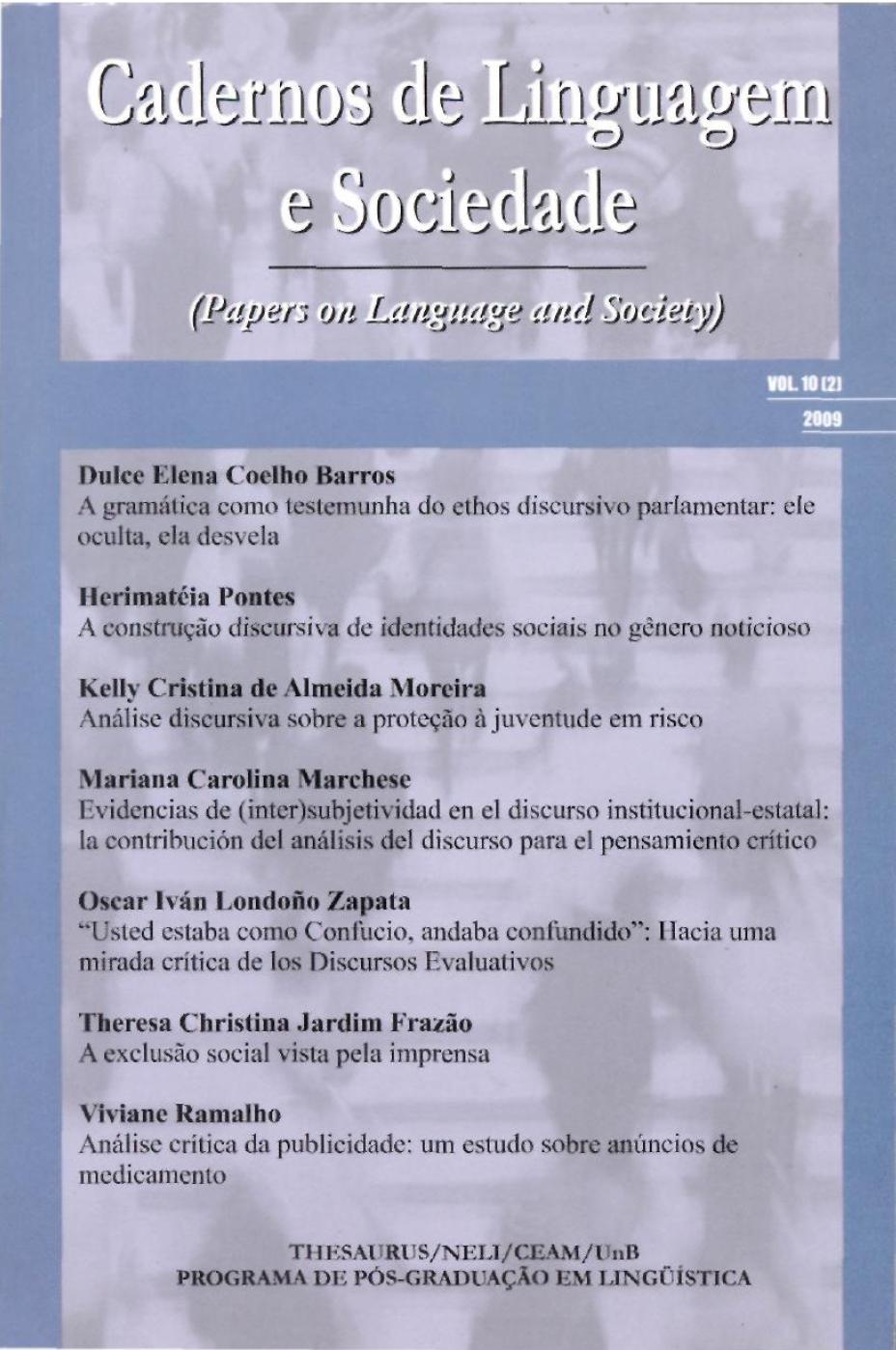The grammar as a witness of the parliamentary discursive ethos: he hides, she unveils
DOI:
https://doi.org/10.26512/les.v10i2.9290Keywords:
parliamentary discourse. feminine social reality. grammar.Abstract
Current analysis deals with the conflict between the diferents types of feminine social representation in texts produced in the Brazilian Parliament. Selected analytic data refer to the violence which the female workers of Triangle Shirtwait shirt factory underwent. Data have been discussed according to discourse concept as discursive, social and linguistic practice. The discussions that pervade current investigation show the important role performed by linguistic and discursive categories in the argumentative construction of pronouncements. In fact, they elucidate the ideological stances of social agents involved in the social and discursive practice under focus.
Downloads
References
BARROS, D. E. C. Argumentatividade no discurso parlamentar: do universo social feminino à gramática. tese de doutorado em Lingüística (inédita). Brasí-lia: Universidade de Brasília, 2008, 234 págs.
BARROS, D. E. C. & SILVA, D. E. G. “Práticas linguístico-discursivas sob a lupa da Análise de Discurso Crítica”. In: Gláuks ”“ Revista de Letras e Artes, vol.8, n.2. jul./dez., 2008, p. 124-147.
BUTT, D.; LUKIN, A. & MATTHIESSEN, C.M.I.M. “Grammar ”“ the first co-vert operation of war”. In: Discourse & Society, 15, 2004, p. 267-290. CHARAUDEAU, P. Discurso político. trad. Dílson Ferreira da Cruz e Fabiana Komesu. São Paulo: Contexto, 2006.
DAVIES, B. & HARRÉ, R. “Positioning: the discursive production of selves”. In: Journal of the Theory of Social Behaviour 20 (1), 1990:48, p. 43-63.DUCROt, Oswald. O dizer e o dito. Revisão técnica da tradução: Eduardo Guimarães. Campinas: Pontes, 1987.
FAIRCLOUGH, NORMAN. Analysing discourse- textual analysis for social re-search. London/New york: Routledge, 2003.
FAIRCLOUGH, NORMAN. Discurso e mudança social. Coordenadora da trad. Izabel Magalhães. Brasília: Editora UnB, 2001. [Original em Inglês: Discourse and social change. Cambridge: Polity Press, 1992].
HALLIDAy & MAtHIESSEN. Construing experience through meaning. Lon-don: Continuum, 1999.
HALLIDAy, M.A.K. & MAttHIESSEN, C. M. A. M. (Rev.) An introduction to functional grammar. 3. ed. London: Arnold, 2004.
MAINGUENEAU, D.Nouvelles tendances en analyse du discours. Paris: Hachette, 1987. [tradução brasileira: Freda Indursky, Campinas: Pontes, 1989].
PERELMAN. Chaïm. Retóricas. São Paulo: Martins Fontes,1999.]
SILVA, D. E. G. “Gramática e contexto na perspectiva funcional do discurso”. In: SILVA, D. E. G., LARA, G.M.P., MENEGAZZO, M.A. (org.). Estudos de linguagem ”“ interrelações e perspectivas. Campo Grande, MS: Ed. UFMS, 2003.
TROTSKy , Lev D. B. La historia de la Revolución Rusa.traducción de An-drés Nin, Lucia Gonzalez y Luis Pastor. tomo I. Madrid: Sarpe, 1985.



